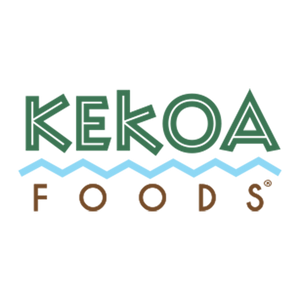
Parenthood is a journey filled with countless joys and a seemingly endless share of questions. From questions about wake windows, to the best types of bottles, to what foods to introduce when starting solids, all parents use Google more than they ever thought they would and rely on friends and family to fill in the blinks in the first couple years of parenthood.
As a dedicated parent or guardian, you want nothing but the best for your baby, especially when it comes to their health and happiness. Introducing solids to baby is an exciting phase that opens a world of flavors, textures, and nutrition.
In this comprehensive guide, we'll walk hand in hand through the essential nutrients your baby needs to thrive and the delightful ways to ensure they get the best of everything.
Protein for Building Blocks and Growth
Protein is the cornerstone of your baby's development. It's essential for building tissues, muscles, enzymes, and even immune cells. Incorporate protein-rich sources like lean meats, poultry, fish, legumes, and dairy into your baby's diet (1). Legumes can be found in our Beets, Fennel & Kale recipe, in the form of black beans, and peas are featured in our Peas & Mint. Both pouches provide 3 grams of plant protein each.
Iron: A Foundation for Brain Development
Iron is critical for cognitive function, oxygen transport, and overall growth. Begin introducing iron-rich baby food purees around six months of age. Opt for pouches with beans, like our Beets, Fennel & Kale puree baby food that contains black beans, as well as lean meats and leafy greens to support your baby's iron needs (2). Our Squash & Kale with Turmeric pouches are not only palate-expanding, but they offer 10% RDA of Iron!
Calcium for Strong Bones and Teeth
Calcium is fundamental for building strong bones and teeth. Offer dairy products like yogurt and cheese or fortified plant-based alternatives. Additionally, introduce starchy vegetables like sweet potatoes to enhance calcium intake (3). Our recipes are sure to include this quality nutrient. Shawarma, Artichoke & Cauliflower provides 10% RDA of Calcium, our Beets, Fennel, & Kale provides 45% RDA, and our Squash & Kale with Turmeric gives your little ones 15% RDA of Calcium.
Vitamin D for Enhanced Calcium Absorption
Vitamin D partners with calcium to ensure proper bone health. Adequate sunlight exposure and vitamin D-fortified foods, like fortified cereals and dairy, contribute to your baby's vitamin D needs (4).
Vitamin A for Vision and Immunity
Vitamin A supports vision, immune function, and skin health. Introduce orange and yellow fruits and vegetables, such as carrots and sweet potatoes, as part of your baby's diet (5). An easy way to incorporate Vitamin A into your baby’s diet is with Kekoa Foods’ Mango Paprika or Curry Vegetable Mango baby food purees.
Omega-3 Fatty Acids for Brain and Eye Health
Omega-3 fatty acids, particularly DHA, play a pivotal role in brain and eye development. Offer fatty fish like salmon and trout or opt for DHA-fortified foods to ensure optimal intake (6). Kekoa Foods’ Shawarma, Artichoke & Cauliflower includes Avocado Oil and our Squash & Kale with Turmeric commands Olive Oil as an ingredient. These are both exceptional healthy fat sources.
Folate for Cellular Growth
Folate supports cell division and DNA synthesis. Include green leafy vegetables, like our Squash & Kale with Turmeric baby food purees that contain kale, as well as legumes like black beans in your baby's diet to provide this essential nutrient (7).
Fiber for Digestive Health
As you progress with introducing solids to baby, consider dietary fiber. Fruits, vegetables, and whole grains offer fiber that aids digestion and supports a healthy gut. Our newest recipe Shawarma, Artichoke and Cauliflower provides 3 grams of Fiber which is good for little ones 6 mos-2 yrs old. 6 out of 7 of our recipes offer 2 or more grams of Fiber per pouch.
The journey of introducing solids to baby is a remarkable opportunity to nourish their growth and development. By incorporating diverse and nutrient-rich foods like baby food purees, lean proteins, fruits, vegetables, and whole grains, you're laying the foundation for a lifetime of health.
Always consult your pediatrician for personalized guidance, and rest assured that each nutrient-packed bite brings your baby one step closer to a bright and thriving future.
References:
Harvard T.H. Chan School of Public Health. (2019). Protein. https://www.hsph.harvard.edu/nutritionsource/what-should-you-eat/protein/
National Institutes of Health. (2020). Iron. https://ods.od.nih.gov/factsheets/Iron-HealthProfessional/
National Institutes of Health. (2021). Calcium. https://ods.od.nih.gov/factsheets/Calcium-HealthProfessional/
National Institutes of Health. (2021). Vitamin D. https://ods.od.nih.gov/factsheets/VitaminD-HealthProfessional/
National Institutes of Health. (2021). Vitamin A. https://ods.od.nih.gov/factsheets/VitaminA-HealthProfessional/
National Institutes of Health. (2021). Omega-3 Fatty Acids. https://ods.od.nih.gov/factsheets/Omega3FattyAcids-HealthProfessional/
National Institutes of Health. (2021). Folate. https://ods.od.nih.gov/factsheets/Folate-HealthProfessional/
